Reading readiness Phonics Worksheets for Ages 4-7
6 filtered results
-
From - To
Boost your child's literacy skills with our engaging "Reading Readiness Phonics Worksheets" designed for ages 4-7! These fun, printable worksheets focus on phonics concepts essential for developing reading readiness. Through interactive activities such as letter recognition, sound matching, and word building, kids will strengthen their understanding of sounds and letter combinations. Our worksheets encourage independent learning while making early reading fun and accessible. Perfect for homeschooling or classroom use, they cater to various learning levels and styles. Give your child the confidence they need to embark on their reading journey with our expertly crafted resources! Explore our collection today!
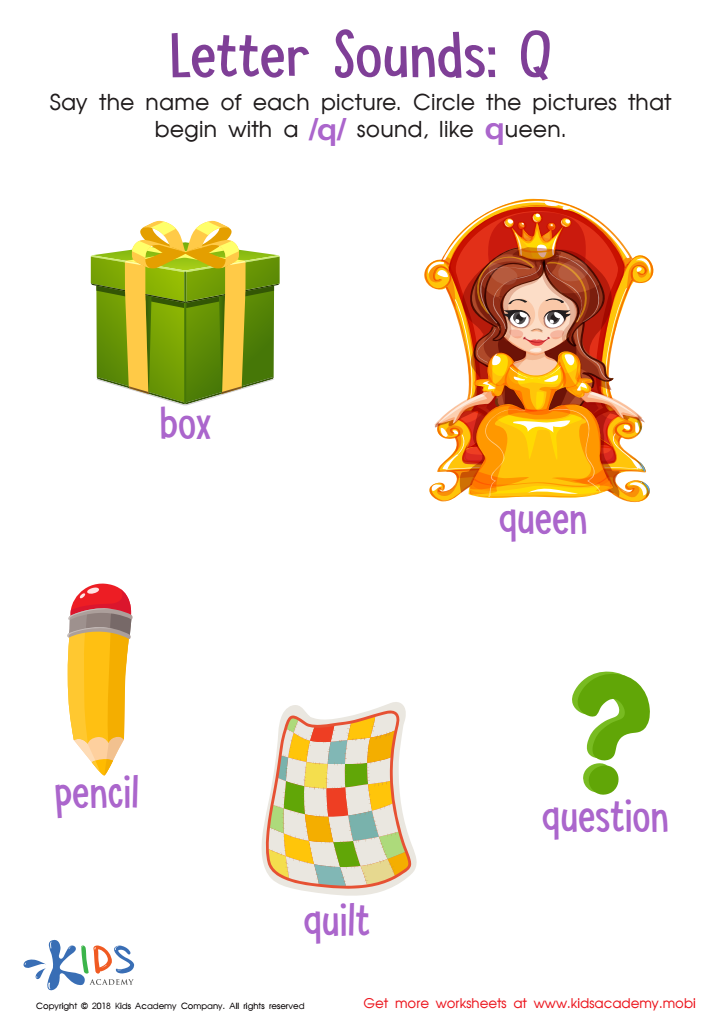

Letter Q Sounds Worksheet
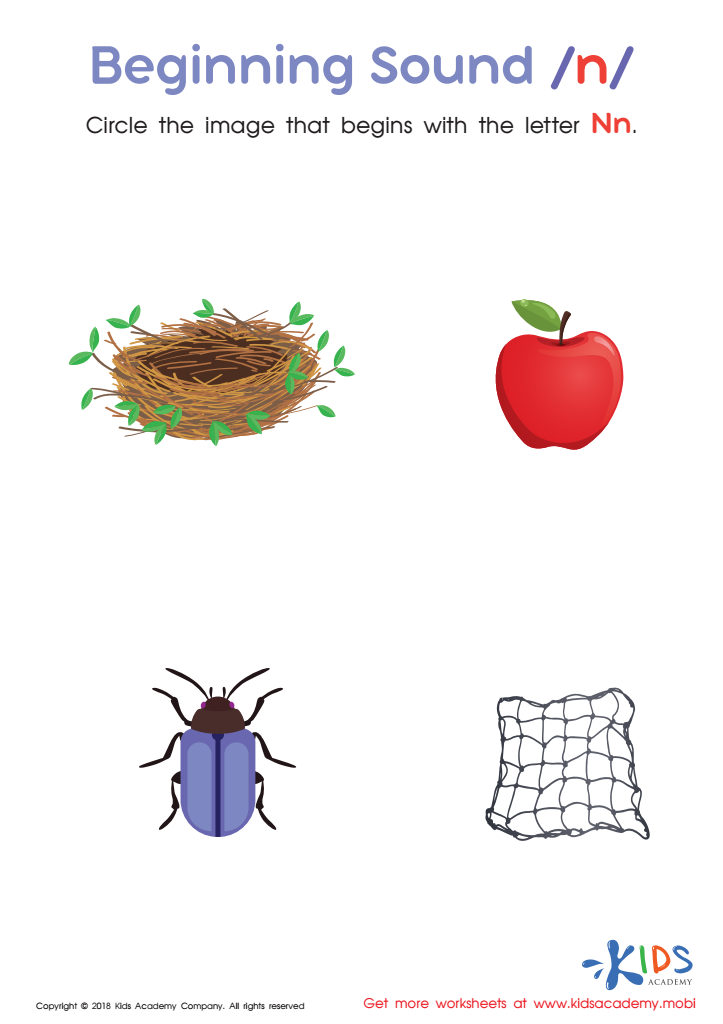

Beginning Sound «n» Worksheet
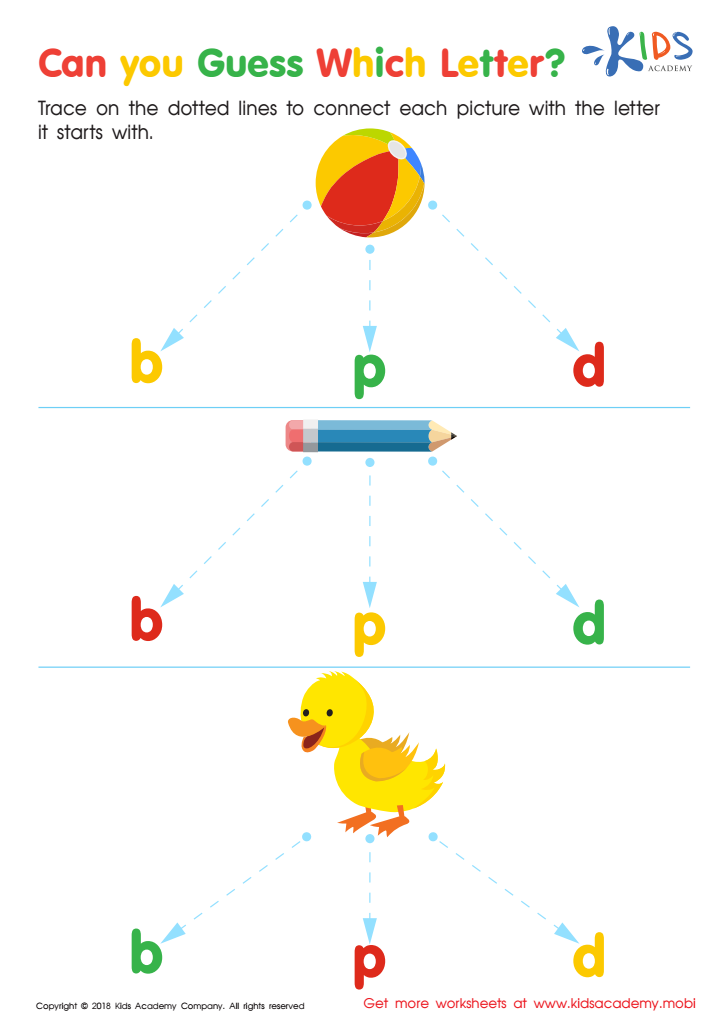

Can you Guess Which Letter? Worksheet
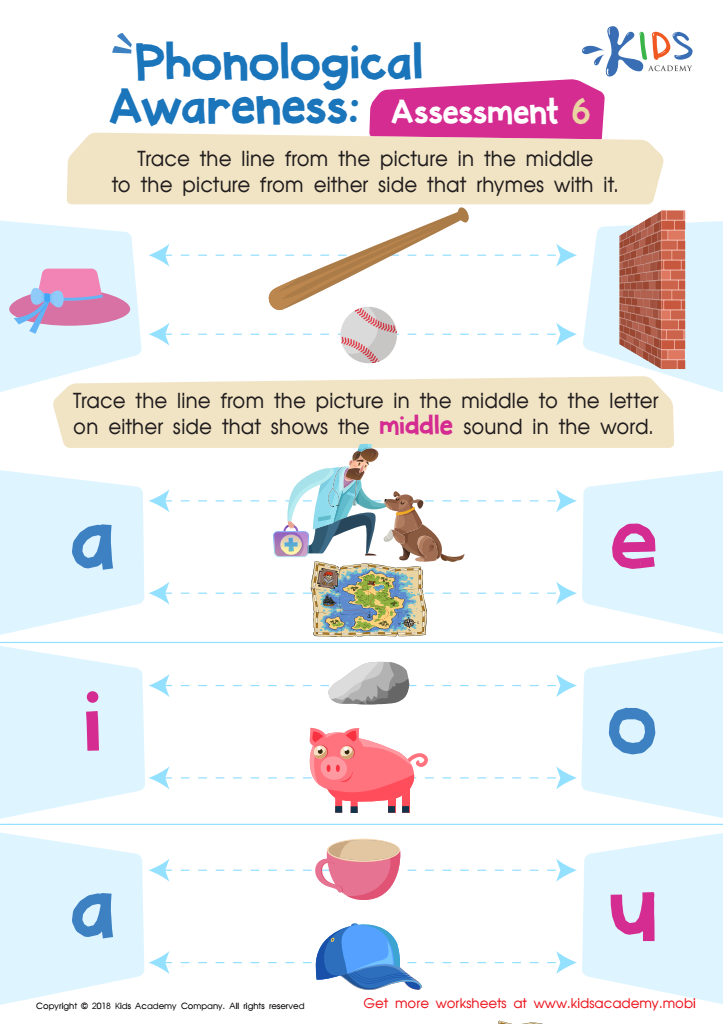

Phonological Awareness: Assessment 6 Worksheet


Phonological Awareness: Assessment 1 Worksheet
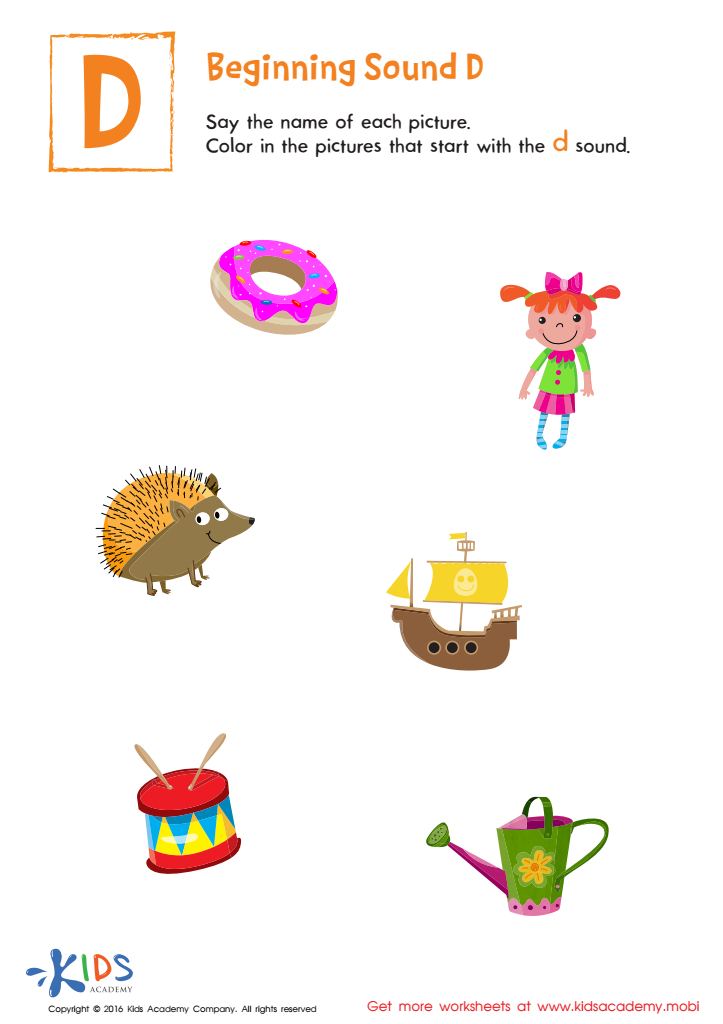

Beginning Sound D Worksheet
Reading readiness and phonics are crucial elements in the early educational journey of children aged 4 to 7. At this stage, children are developing foundational skills that set the tone for their future literacy. Phonics, in particular, helps children understand the relationship between letters and sounds, enabling them to decode words effectively. This skill not only enhances their reading capabilities but also builds confidence in their ability to tackle new texts.
Parents and teachers should prioritize reading readiness because early intervention can prevent future literacy challenges. When children grasp phonics, they can tackle unfamiliar words independently, fostering a love for reading and learning. Moreover, strong reading skills are linked to academic success across subjects, with proficient readers often exhibiting better overall performance in school.
Encouraging phonics through fun activities, games, and stories creates a positive learning environment, sparking enthusiasm and curiosity about language. By recognizing the importance of reading readiness and phonics, parents and teachers play an essential role in shaping children into confident, enthusiastic readers, better preparing them for lifelong success in education and beyond. Supporting this developmental stage ensures children are not only ready for school but also possess the tools necessary for effective communication and comprehension.
 Assign to My Students
Assign to My Students





















